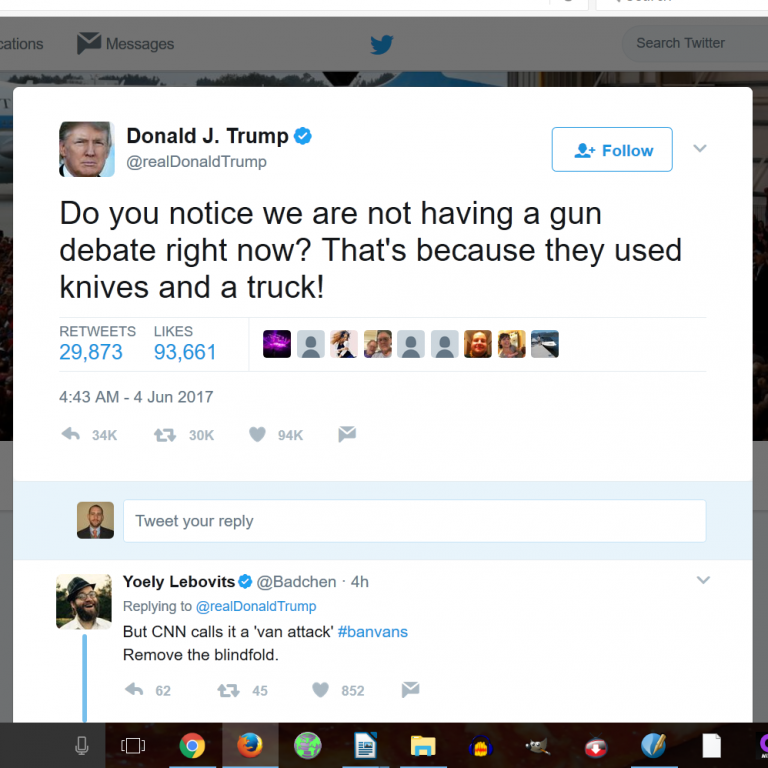By Roberto E. Alejandro, Editor-in-Chief
On December 2, 2015, Syed Rizwan Farook and Tashfeen Malik, armed with an M&P15 rifle, Model 64 F .22-caliber rifle, DPMS Model A-15 .223-caliber rifle, and two 9mm handguns, killed 14 people and wounded 22 others when they attacked a holiday party at Farook’s workplace in San Bernadino California (source). The two were later discovered to have pledged allegiance to the Islamic State in social media communications.
On June 12, 2016, Omar Mateen, armed with a 9mm handgun and a SIG Sauer military-style rifle killed 49 people and wounded 53 others at the Pulse nightclub in Orlando, FL (source). ISIS declared responsibility shortly thereafter, though the sense among many is that Mateen was self-radicalized and largely planned and acted without material aid from the terrorist organization.
On June 3, 2017, three assailants plowed through pedestrians in London with a truck, then exited the vehicles and attacked bystanders with what have been described as large hunting knives, killing at least seven and wounding many more, including 21 people who were still wounded (source). Again, ISIS declared responsibility.
In the aftermath of that London attack, coming just two weeks after an ISIS-linked suicide bombing in Manchester killed 22 people, President Donald Trump tweeted: “Do you notice we are not having a gun debate right now? That’s because they used knives and a truck!”
And Trump is right, we should notice that we are not having a gun debate in the aftermath of the attack in London, and it is precisely because the assailants used knives and a truck.
Guns are not easy to come by in England. Not coincidentally, the terrorists who set out to kill people going about their Saturday night in London were forced to use alternative, and, it turns out, less deadly means to carry out their attack. The three of them together failed to cause as much death as two persons in San Bernadino and significantly less than a single person in Orlando. The Orlando example is particularly striking, since in both Orlando and London, the terrorists targeted active areas with many people, and yet the three London assailants could not manage the death tally that a single person with a military-style rifle did in Orlando. Hell, not even the Manchester suicide-bomber, who, in case it isn’t clear, set off a BOMB, didn’t manage to kill as many people as Mateen.
Trump seemed to think the point he was making with his tweet was that even without guns, terrorists can still strike. But the point he actually made, advertent or not, is that effective gun regulation, like that which exists in the U.K., keeps far more deadly weapons out of the hands of people who would harm innocents. You may not be able to stop acts of violence, but you can minimize their toll, and certainly that is a valid aim for a public policy, no?
Guns are not easy to come by in England. Knives are easier to come by, but having lived in the U.K. for two years, I know that even purchasing a paring knife from a home goods store requires showing an ID proving you are above 18 years of age. Since there are few guns in the hands of U.K. citizens, most violent crimes are perpetrated with knives, hence the regulation of their sale.
That regulation failed in the case of the London attack, but there can be little doubt that three men armed with military-style weapons would have done far more damage than they achieved with knives and a truck (and this has already been pointed out by many). We in America would do well to notice how much less efficient at killing knives and trucks are, and start that gun control conversation Trump suggested we should be having.

